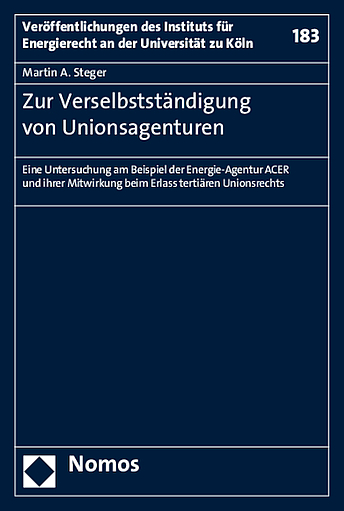englischIn 2011 the Agency for the Cooperation of Energy Regulators (ACER) became operational. Due to the lack of provisions in European primary law it remains unclear how the relationship between an agency and Member States as well as the European Institutions has to be designed. There is a need for clarification in terms of control and legitimacy. In particular this is true for ACER. As a precursor to a European regulatory authority the agency has important powers. ACER is involved, inter alia, in the adoption of binding tertiary law of the European Union in the form of so-called network codes. In certain cases, the agency regulates cross-border infrastructure. The study addresses the question whether the creation and operation of ACER are legally permissible. Crucial for the development of necessary legal boundaries for agencies is the so-called Institutional Balance and the Meroni-Doctrine of the European Court of Justice of 1958.
Im Jahr 2011 hat die Agentur für die Zusammenarbeit der Energieregulierungsbehörden, kurz ACER, ihre Arbeit aufgenommen. Mangels Vorgaben im europäischen Primärrecht ist bis heute unklar, wie das Verhältnis einer Agentur zu den Mitgliedsstaaten und den Unionsorganen auszugestalten ist. Es besteht Klärungsbedarf, was Kontrolle und Legitimation angeht. Dies gilt besonders für ACER. Als Vorform einer europäischen Regulierungsbehörde verfügt sie über gewichtige Befugnisse. Die Agentur ist unter anderem am Erlass von verbindlichem tertiären Unionsrecht in Form der sogenannten Netzkodizes beteiligt. In bestimmten Fällen reguliert sie grenzüberschreitende Infrastrukturen. Die Untersuchung widmet sich der Fragestellung, inwieweit Gründung und Wirken der ACER rechtlich zulässig sind. Entscheidend für die Entwicklung rechtlicher Grenzziehungen ist dabei das Rechtsinstitut des sogenannten institutionellen Gleichgewichts in der Prägung der Meroni-Entscheidungen des Europäischen Gerichtshofs aus dem Jahr 1958.


